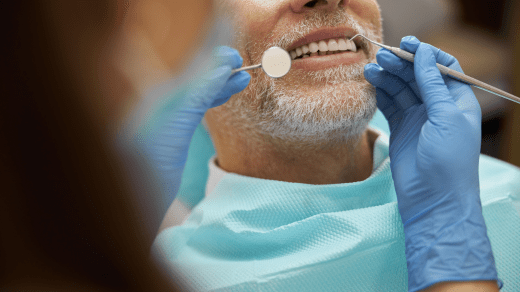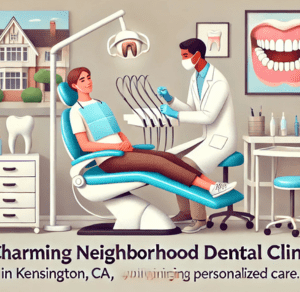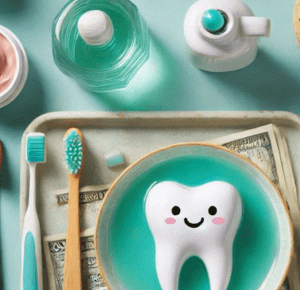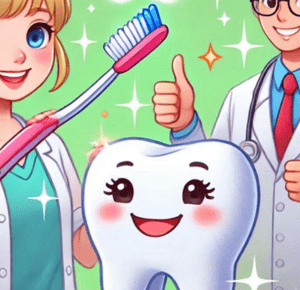
Dental health is a crucial part of your overall well-being, yet it’s often overlooked. This blog post is dedicated to helping dental patients understand and improve their oral hygiene habits. With the right knowledge and practices, you can prevent common dental issues and enjoy a healthier smile. We’ll cover everything from the basics of oral hygiene to advanced dental care techniques. By the end, you’ll have a comprehensive understanding of how to raise the standards of your dental health.
The Basics of Oral Hygiene
Oral hygiene is the cornerstone of dental health, involving essential practices to keep your mouth clean and disease-free. The two main pillars are brushing and flossing, which, when done correctly, can prevent cavities and gum disease. Brushing twice a day with a soft-bristled toothbrush and fluoride toothpaste for at least two minutes ensures all tooth surfaces are covered, including the tongue, which can harbor bacteria causing bad breath. Equally important is flossing daily to remove food particles and plaque from between teeth where a brush can’t reach, by gently guiding the floss between teeth and moving it up and down along each surface. Mouthwash can complement these practices by reducing plaque, fighting bacteria, and leaving your mouth feeling fresh. Choose a mouthwash that meets your specific needs, whether to fight cavities, reduce gingivitis, or simply freshen your breath.
Building a Routine
Consistency is crucial for maintaining good oral hygiene, and establishing a routine ensures you cover all necessary steps to keep your dental health on track. Begin by setting specific times for brushing and flossing, such as after breakfast and before bed, while flossing can be more focused at night. Incorporating mouthwash after brushing and flossing, swishing for 30 seconds to a minute, helps protect your teeth throughout the day or night. Additionally, keeping dental hygiene tools like interdental brushes or floss picks handy can aid in cleaning hard-to-reach areas, making flossing more convenient, especially when you’re on the go. Find a routine that seamlessly fits into your daily schedule to ensure you never miss a step in your oral care regimen.
How to Prevent Common Dental Issues
Prevention is the most effective strategy for maintaining dental health, helping to avoid common issues such as cavities, gum disease, and bad breath. Cavities arise from plaque that converts sugars into acids, eroding tooth enamel, so limiting sugary snacks and drinks and brushing regularly with fluoride toothpaste is crucial to strengthen and protect your teeth. Gum disease starts with plaque buildup along the gumline, potentially leading to inflammation, bleeding gums, or tooth loss if untreated, so regular brushing, flossing, and dental check-ups are essential preventive measures. Bad breath, often due to poor oral hygiene or certain foods, can be mitigated by brushing your tongue, using mouthwash, staying hydrated, avoiding tobacco, and limiting coffee and alcohol intake. By understanding these causes and prevention methods, you can save yourself from discomfort and costly treatments.
Choosing the Right Products
Selecting the right dental products is crucial for maintaining optimal dental health, given the wide array of options available. It’s essential to research and choose products that align with your oral hygiene goals. When it comes to toothbrushes, opt for ones with soft bristles to protect your gums, and consider electric toothbrushes for their effectiveness, remembering to replace them every three to four months. Toothpaste with fluoride is vital for strengthening enamel and preventing cavities, so look for those with the ADA Seal of Acceptance, and explore specialty options for sensitivity, whitening, or gum health. Mouthwash can serve different purposes, such as reducing plaque, freshening breath, or providing fluoride; selecting the right one depends on your specific needs, with alcohol-free varieties being gentle enough for daily use.
Diet in Dental Health
Your diet plays a crucial role in dental health, directly affecting the condition of your teeth and gums. Making mindful food choices supports oral hygiene efforts, contributing to stronger, healthier teeth. Consuming calcium-rich foods like dairy products, leafy greens, and almonds helps strengthen teeth and bones, while vitamin D from sources like fatty fish and fortified cereals aids calcium absorption. It’s essential to limit sugary and acidic foods, such as sodas, candy, and citrus fruits, as they can damage enamel; if consumed, rinse your mouth with water and wait 30 minutes before brushing to prevent enamel harm. Additionally, crunchy fruits and vegetables like apples and carrots stimulate saliva production, which cleanses the mouth and provides vital nutrients that benefit gum health and overall well-being.
When to Visit the Dentist
Regular dental visits are crucial for maintaining optimal oral health, as they allow dentists to identify issues early and perform professional cleanings that remove plaque and tartar, easing any anxiety about what to expect. It’s recommended to visit your dentist, someone like Lapeer Family Dental, every six months for routine check-ups and cleanings, enabling them to monitor your dental health and promptly address any emerging concerns. Immediate dental care is necessary if you experience pain, swelling, or bleeding in your mouth, as these symptoms may indicate underlying issues that require urgent attention; delaying treatment can lead to more severe problems. Additionally, it’s important to discuss any changes in your oral health with your dentist, including new medications or conditions that may impact your dental care, ensuring you receive personalized and effective treatment.
Advanced Dental Care Techniques
Advanced dental care techniques go beyond basic oral hygiene to offer enhanced protection and improve the appearance of your smile. Dental sealants, for instance, are thin coatings applied to the chewing surfaces of back teeth, effectively sealing out food particles and bacteria to prevent cavities, making them especially beneficial for children and teens. Fluoride treatments are another advanced method, strengthening enamel and helping to prevent decay; these are often recommended by dentists during regular visits, particularly for individuals at high risk for cavities. Additionally, cosmetic procedures such as teeth whitening or veneers can significantly enhance the aesthetics of your smile, boosting your confidence and satisfaction. It’s advisable to consult your dentist to determine the suitability of these treatments for your specific needs.
Improving your dental health is a crucial step towards enhancing overall well-being. By understanding the basics of oral hygiene, building a consistent routine, and selecting the right products, you can effectively prevent common dental issues. Incorporating a healthy diet and scheduling regular dental visits further support these efforts. For those eager to go beyond the basics, advanced dental care techniques are available to enhance your smile. Take charge of your dental health today and reap the benefits of a radiant smile. For personalized advice and guidance, consult with your dentist to tailor a plan that meets your unique needs and preferences. Whether you’re embarking on your dental health journey or seeking to elevate your current practices, you’re on the right path to achieving a healthier, more confident smile.






